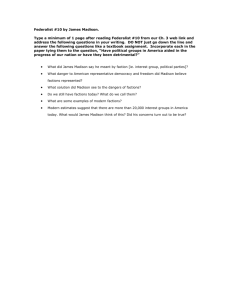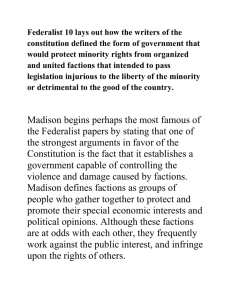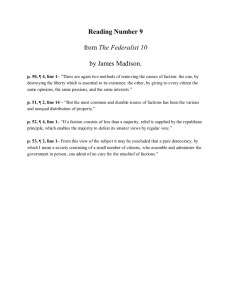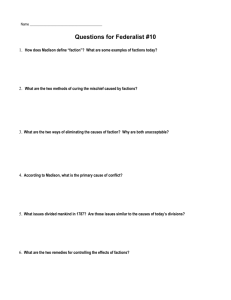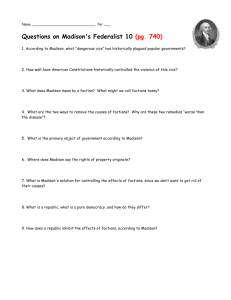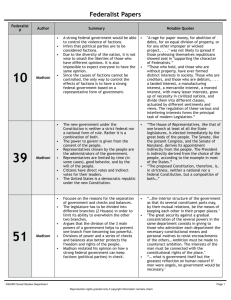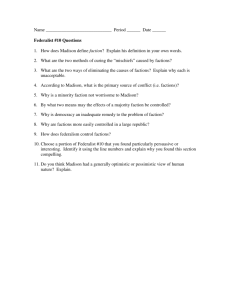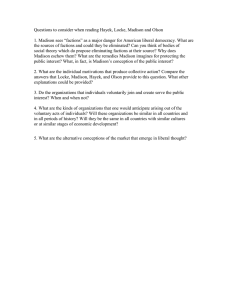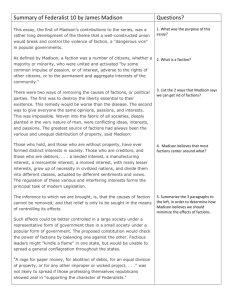Interest Groups: Purpose and Origins
advertisement
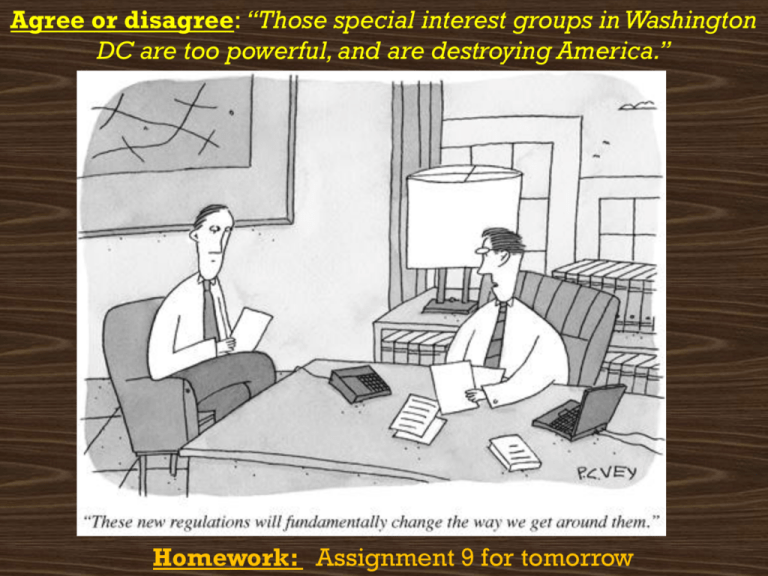
Agree or disagree: “Those special interest groups in Washington DC are too powerful, and are destroying America.” Homework: Assignment 9 for tomorrow Unit 3a: AP Government and Politics “Yes , ladies and gentlemen, we are the special interests. All of us. You may not raise Angora goats; you may not grow corn. But you are part of some group – probably many of them – that has unique interests: a profession, an ethnic group, a demographic group, a neighborhood, an industry, a part of the country. It is facile (effortless) to declare that politicians should just do the right thing. The hoary old cliché about tough decisions is true. Doing the right thing – making a decision that generates more benefits for the nation than costs – will not cause people to stand up and cheer. It is far more likely that the many people you have made better off will hardly notice while the small group you have harmed will pelt your car with tomatoes.” • Charles Wheelan, Naked Economics First, the more divisions in society, the more variety of interests that will exist. • We have many different lines along which we divide ourselves, and these make for a variety of interests and opinions. • It is inevitable; Madison said, “the latent causes of faction are thus sown in the nature of man.” Second, due to the separation of powers, plenty of places exist to plead one’s cause. • “Access points” • And with more chances/places to influence policy, more organizations will seek to exercise that influence. Third, weakness of political parties • Where parties are weak, interests operate directly on the government; where they are strong, interests work within the parties. Theories of Interest Group Formation 15.1 Pluralist Theory Political power distributed among groups; many groups who vie for power; “hyperpluralism” Disturbance Theory Groups form in response to change; as new laws emerge or issue rise, groups form to address them Transactions Theory Public policy results from transactions among political players; the “elites”, who have lower “transaction cost” because they have more time and money Kinds of Interest Groups 15.1 Public Interest Groups Seek a collective good; don’t benefit directly from their actions Economic Interest Groups Promote the economic interests of their members Includes labor groups like the AFL-CIO Ideological, Single-Issue Groups Members have common values, or value one issue Governmental Units State and local governments lobby, too **Political Action Committees Officially registered fundraising organizations that represent interest groups Most powerful* http://listosaur.com/politics/10-powerful-specialinterest-groups-america/ What was “Madison’s Dilemma”, as outlined in the Federalist 10? • Why does Madison say that factions are detrimental to the public good? • Why is removing the causes of factions not possible, according to Madison? **What are the liberties that give rise to factions? • What “remedy” does Madison propose to cure the effects of factions? Explain Madison’s argument with regard to this remedy. • In your opinion, do factions (parties, interest groups) have a positive or negative effect on our democracy? Why or why not? Membership? • Internal differences? Focus? • Number of issues? Goals? • How do they achieve these?
